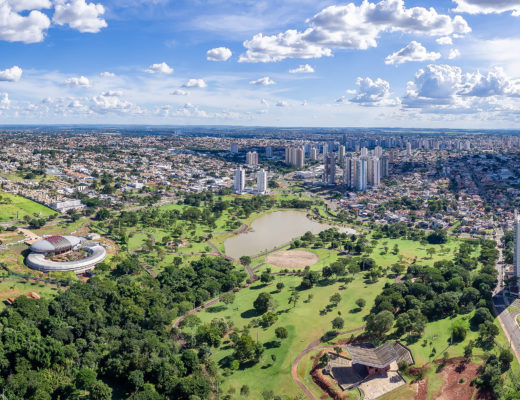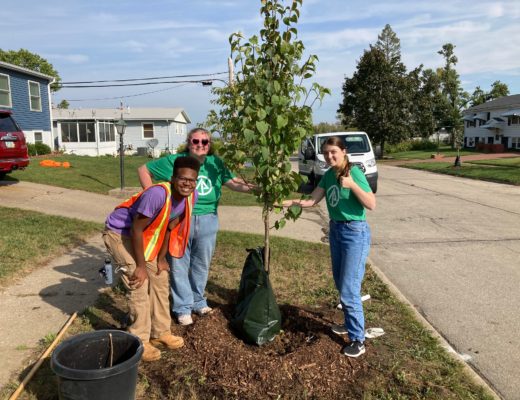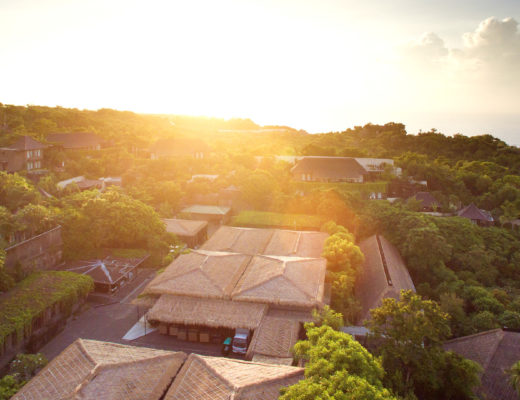Every year for the past 20 years, hundreds of volunteers and city workers in metropolitan Kansas City come together in an effort known as Project Blue River Rescue. Their goal: to clean up piles of trash and illegal dumping out of the Blue River which flows through their city.
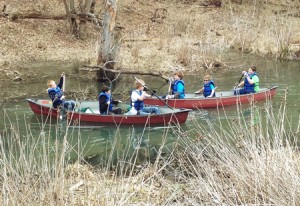
Kansas City-area boy scouts take to the Blue River to haul out debris as part of the Project Blue River Rescue 2013. Photo: PBRR Facebook.
Partnering with the Kansas City Public Works, the Missouri Department of Conservation and several local businesses and organizations, Project Blue River Rescue has grown to be Missouri’s largest, one-day conservation cleanup.
“Each year, volunteers have cleaned up thousands of pounds of trash, tires, appliances and even cars,” says Wendy Sangster, Urban Forester with the Missouri Department of Conservation.
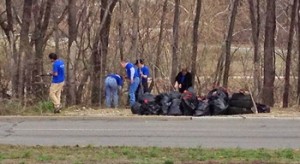
Volunteers remove several bags of trash and nuisance honeysuckle from the banks of the Blue River in metro Kansas City, as part of the Project Blue River Rescue 2013. Photo: PBRR Facebook.
More recently, Project Blue River Rescue has also focused on habitat restoration along the river. In April 2013, a group of 20 volunteers organized by the Heartland Tree Alliance, a branch of Bridging the Gap, planted 500 tree seedlings along the Blue River near a baseball complex in southern Kansas City. The seedlings included native species — burr oak, sycamore, pecan and shellbark hickory — all which would have normally grown along the Blue River. Volunteers also worked to remove invasive honeysuckle plants along the waterway to ensure the growth of these new seedlings.
Sangster firmly believes in the longevity of this project and the positive impact it has on the local community. By getting community members involved in the planting, she feels it instills a connection to nature and provides a foundation for advancing environmental stewardship in the greater Kansas City area.
“If a volunteer can do the physical, hard work of planting a tree,” Sangster says, “they are more likely to become ambassadors and tree stewards in their own communities.”
– – – – – – – – – – – – – – – – – – – – – – – – – – – – – – – – – – – – – –
Mary Sweeney is a program manager at the Arbor Day Foundation.

